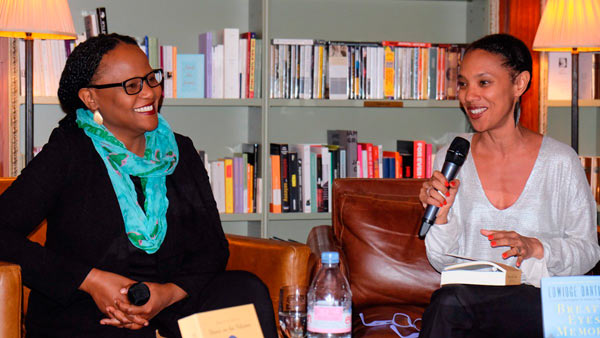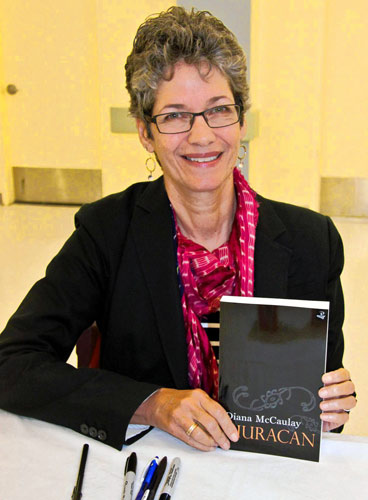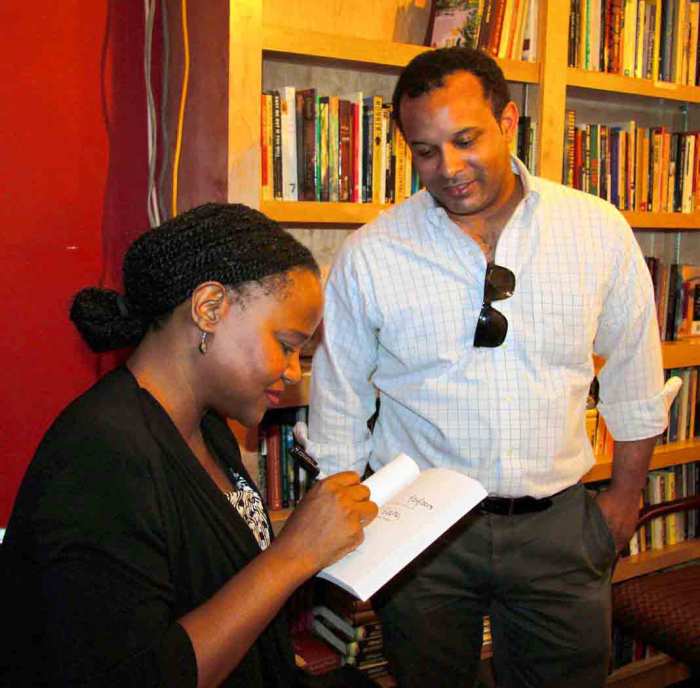At the Cultural Services of the French Embassy on upper Fifth Avenue, Haitian author and McArthur genius award recipient Edwidge Danticat spoke with Barnard professor Kaiama L. Glover about “Dance on The Volcano.” Written by Haitian author Marie Vieux-Chauvet, this is Glover’s most recent French-English translation and was published by Brooklyn’s Archipelago Books.
Marie Vieux-Chauvet was raised in a well-to-do family in Port-au-Prince and was drawn to subjects of the disenfranchised. Issues of justice, equality and women became themes in her writing. A poet and playwright, she authored five novels in the mid to late 50s and 60s.
“Dance on the Volcano” is the first work of historical fiction by a Haitian writer. The story takes place in Port-au-Prince, set in the colonial era in a simmering atmosphere when the revolution is not far in the future.
For Danticat, the Vieux-Chauvet books on a shelf of books in the New York Public Library in French were among the works that she gravitated to as a new immigrant from Haiti. “I read the whole shelf,” she told attendees. In Haiti at that time, her education was conducted in French and highlighted French writers. “It was powerful to discover we had this legacy,” she added.
Glover spoke about the book. The revolution has nuances. Vieux-Chauvet airs dirty laundry through human stories — both the glorious and ugly parts. And the story is through the perspective of a woman. Danticat commented on the feminist perspective along with all the main character’s contradictions. And, not all in that era’s society were on board with the revolution.
Glover said that the author writes in great detail, setting the scene and the texture of the era drawing on a background in theatre to portray scenes so vividly. In translating, Glover even researched 18th century garments so she would get it right.
This is the second, more current translation of “Dance on the Volcano”— the first was published almost 60 years ago.
Writer Joan Dayan wrote of this author, “Haiti’s greatest writer has suffered because of near oblivion.” Vieux-Chauvet’s “Amour, Colère et Folie,” Love, Anger and Madness, a trilogy written in 1968, was published posthumously 14 years after her 1973 death. It was suppressed for years due to fears it would affect her Haiti-based family. Finally, it found its way to a clambering audience by an unauthorized published edition in 2003. Its English translation was published in 2009. Vieux-Chavet’s first book, “Fille d’Haiti,” Daughter of Haiti, is the most well known.
Of Jamaican-heritage, Kaiama L. Glover, assistant professor of French and Africana Studies at Barnard College is a scholar of French literature. Along with authoring three books and a slew of academic articles, she has translated three books written in French by Haitian writers. Glover is on a mission by translating French books into English. “My interest is to make available these books not just for English speakers, but also for Haitian-Americans who might not have the (French) language (to read and understand). This delights Danticat, “I’m grateful. My nieces and nephews will be able to read and acknowledge this work.”

























